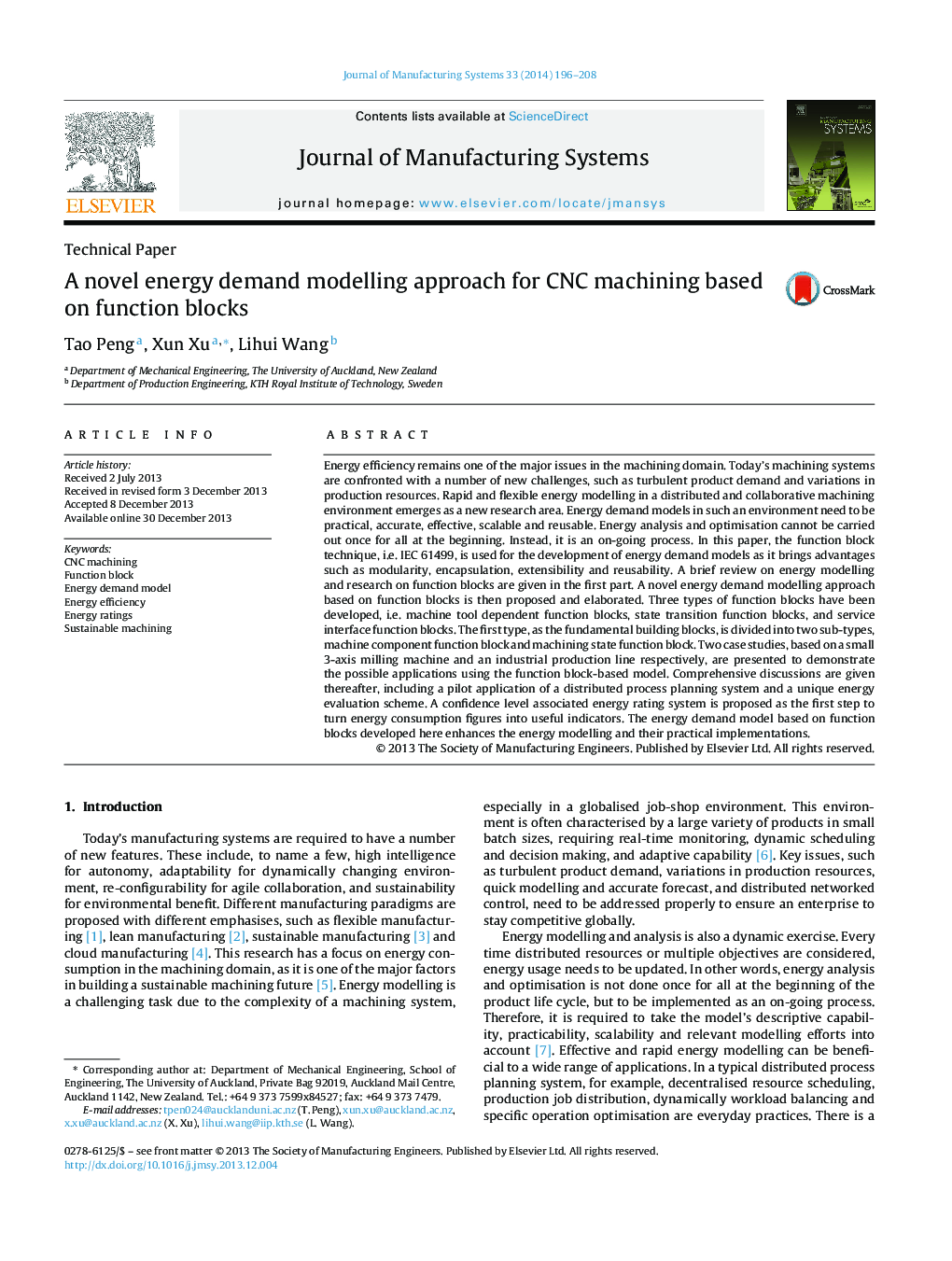| Article ID | Journal | Published Year | Pages | File Type |
|---|---|---|---|---|
| 1697639 | Journal of Manufacturing Systems | 2014 | 13 Pages |
•Monitoring and quantifying energy consumption of machining processes.•Proposed approach for energy demand modelling is based on function blocks.•Energy-efficient process planning supports distributed environment.•CLASS energy rating system reflects reliability and accuracy energy demand.
Energy efficiency remains one of the major issues in the machining domain. Today's machining systems are confronted with a number of new challenges, such as turbulent product demand and variations in production resources. Rapid and flexible energy modelling in a distributed and collaborative machining environment emerges as a new research area. Energy demand models in such an environment need to be practical, accurate, effective, scalable and reusable. Energy analysis and optimisation cannot be carried out once for all at the beginning. Instead, it is an on-going process. In this paper, the function block technique, i.e. IEC 61499, is used for the development of energy demand models as it brings advantages such as modularity, encapsulation, extensibility and reusability. A brief review on energy modelling and research on function blocks are given in the first part. A novel energy demand modelling approach based on function blocks is then proposed and elaborated. Three types of function blocks have been developed, i.e. machine tool dependent function blocks, state transition function blocks, and service interface function blocks. The first type, as the fundamental building blocks, is divided into two sub-types, machine component function block and machining state function block. Two case studies, based on a small 3-axis milling machine and an industrial production line respectively, are presented to demonstrate the possible applications using the function block-based model. Comprehensive discussions are given thereafter, including a pilot application of a distributed process planning system and a unique energy evaluation scheme. A confidence level associated energy rating system is proposed as the first step to turn energy consumption figures into useful indicators. The energy demand model based on function blocks developed here enhances the energy modelling and their practical implementations.
